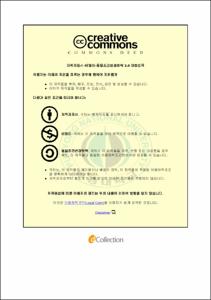FTA 정보시스템 역량이 FTA활용의사에 미치는 영향
- Abstract
- After Korea's first FTA with Chile in 2003, the Korea-China FTA was finally concluded in November 2014 and the Korea-Canada FTA will take effect on January 1, 2015; thus, Korea has become a veteran country in terms of FTAs for 12 years since its FTA took effect. So while it is necessary to increase the number of FTAs to conclude and come into effect, now is the time to examine and improve practical policies necessary for Korean enterprises, including small- and medium-sized ones, to utilize FTAs as well as to reflect on those negotiations that have been made.
The purpose of this study was to determine the effects of FTA information system capability on the willingness to utilize FTAs, with a focus on small- and medium-sized enterprises in southeastern regions, including Busan, South Gyeongsang Province, and Ulsan, and to make an empirical analysis of problems they might experience in utilizing FTAs due to limited personnel specializing in FTAs and complicated paperworks with the aim of providing data necessary for the government to take a customized FTA support measure for small- and medium-sized enterprises. In particular, it intended to pay attention to the effects of FTA information system capability on the willingness to utilize FTAs with the objective of helping small- and medium-sized enterprises in FTA-utilizing regions increase their exports and making the Korean FTA policies substantial.
For this purpose, research models and hypotheses concerning FTA information system capability and the willingness to utilize FTAs as well as concerning problems with FTA utilization were established on the basis of the variables identified through literature review; then, 110 questionnaires returned were analyzed, obtaining the result that enterprises equipped with better FTA information system capability were more likely to believe that utilizing FTAs might be competitive and give a chance to enter the market. Enterprises having FTA information system capability or feeling anxious about technology leakage specific to them were more willing to participate in FTA-related training but had a lower demand for consulting. Besides, those having problems with certification of origin, paperworks, and internal administration were more willing to utilize FTAs, believing that FTAs might be competitive and give a chance to enter the market.
The results of additional analyses, including t-test and ANOVA, showed that enterprises utilizing 50% or more of FTAs were better equipped with information system capability, were more likely to consider FTAs to be competitive, were more willing to participate in FTA-related training, and had a higher demand for FTA consulting than those utilizing less than 50% of FTAs. Enterprises without general-purpose or internal programs, such as FTA-PASS, which are information systems to utilize FTAs, felt the greatest burden of origin certification for FTAs as well as the greatest risk of cost and technology disclosure.
To put the results together, enterprises equipped with good FTA information system capability and utilizing FTAs were more likely to have positive expectation of FTAs as well as positive attitude toward FTA utilization, for example, through participation in training. This study provides information to help the government determine a policy direction for supporting FTA utilization by inducing the government to improve and complement the existing FTA information system so that more enterprises can utilize it more actively and by suggesting diversification and specialization of FTA-related training programs.
- Issued Date
- 2015
- Awarded Date
- 2015. 2
- Type
- Dissertation
- Publisher
- 부경대학교 국제통상물류학과
- Affiliation
- 부경대학교 국제통상물류학과
- Department
- 대학원 국제통상물류학과
- Advisor
- 조찬혁
- Table Of Contents
- Ⅰ.서론 1
1. 연구의 배경 및 목적 1
2. 연구의 내용 및 방법 3
Ⅱ. 이론적 배경 및 기존문헌 검토 5
1. FTA에 대한 이론적 배경 6
1.1. FTA의 개념 및 주요내용 6
1) FTA의 개념 6
2) FTA의 주요 내용 7
1.2. FTA 체결 현황 10
1) 전 세계 FTA의 체결 현황 10
2) 우리나라 FTA 체결 현황 14
2. 부산지역 기업의 FTA 활용현황 20
1. 부산지역 기업의 수출·입 현황 20
2. FTA 체결 후 부산지역 기업의 수출·입 현황 20
3. FTA 정보시스템 활용 역량 및 FTA 애로요인 22
1. FTA 정보시스템과 활용 역량의 개념 및 선행연구 22
2. FTA 활용 애로요인 23
Ⅲ.연구의 설계 및 방법 25
1. 연구모형 설계 및 가설 설정 25
1) 연구모형 설계 25
2) 연구가설 설정 27
2. 설문대상의 선정 및 분석방법 29
2.1. 변수의 조작적 정의와 측정 29
1) 독립변수 29
2) 종속변수 30
2.2. 설문대상의 선정 및 자료수집과 분석방법 34
1) 설문대상의 선정 및 자료수집 34
2) 분석방법 35
Ⅳ. 실증분석 및 연구결과 36
1. 설문대상자의 일반적 특성 36
2. 실증분석 및 연구결과 40
2.1. 신뢰도 분석 40
1) 독립변수의 신뢰도 분석 41
2) 종속변수의 신뢰도 분석 42
2.2. 타당성 요인분석 43
1) FTA 활용 애로요인에 대한 요인분석 44
2) FTA 활용 외부 역량에 대한 요인분석 45
3) FTA 활용 의사에 대한 요인분석 46
2.3. 상관관계 분석 47
2.4. T-검정 49
2.5. 분산분석 51
3. 연구가설 검증 및 결과 55
1. 연구가설 검증 및 회귀분석 결과 55
1) 가설 1 56
2) 가설 2 57
3) 가설 3 58
4) 가설 4 59
Ⅴ. 결론 및 시사점 61
1. 연구의 결론 및 시사점 61
2. 연구의 한계 및 향후 연구방향 63
* 참고문헌 64
* 설문지 66
- Degree
- Master
- Appears in Collections:
- 대학원 > 국제통상물류학과-FTA비즈니스전공
- Files in This Item:
-
-
Download
 FTA 정보시스템 역량이 FTA활용의사에 미치는 영향.pdf
기타 데이터 / 4.72 MB / Adobe PDF
FTA 정보시스템 역량이 FTA활용의사에 미치는 영향.pdf
기타 데이터 / 4.72 MB / Adobe PDF
-
Items in Repository are protected by copyright, with all rights reserved, unless otherwise indicated.